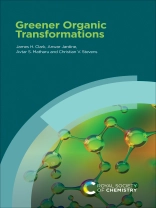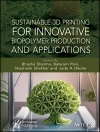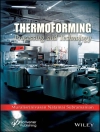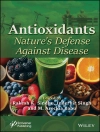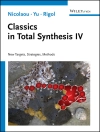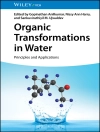Green chemistry has progressed from being a driver for change in the chemical and allied industries to being a critical part of chemical education at all levels. The future chemist must be able to practice their trade in the light of increasing concerns about waste and resources, the safety of chemicals in consumer products, and increasingly restrictive legislation. While there are green chemistry educational resources available including lectures and experiments as well as numerous books on green chemistry and major green chemical technologies, there is no “green equivalent” of a standard organic chemistry textbook
Systematically covering a variety of well-known reactions that commonly feature in standard organic textbooks this book supplements and supports the standard organic chemistry texts. It highlights the main sustainability issues of classical and contemporary organic transformations and critically evaluates them within a metric of established Green Chemistry Principles noting where additional efforts are needed to improve their environmental footprint. Written by a team of expert authors with a multinational advisory board, this book is a fantastic resource for advanced undergraduate and postgraduate students worldwide.
Daftar Isi
Introduction to Green Chemistry;
Alkylation;
Alkylation of Imines;
Amide Bond Formation;
Bromination Reactions;
Chlorinations Using Thionyl Chloride;
Chlorinations Using Chlorine Gas;
Diazomethane: A C1 Building Block;
Fluorinations Not Using Fluorine Gas;
Friedel–Crafts Reactions;
Heck Reactions;
Nitration Reactions;
Organometallic Addition Reactions to Ketones;
Phosphorus Oxychloride: Production and Use;
Polymer Chemistry: From Fundamentals to Bio-based Alternatives;
Pyridine Synthesis;
Pyrrole Synthesis;
Rearrangements;
Redox Reactions;
Suzuki Reactions;
Thiophenes Synthesis;
The Wittig Reaction
Tentang Penulis
James H Clark is Professor of Chemistry at the University of York, and is Founding Director of the Green Chemistry Centre of Excellence and the Bio-renewables Development Centre. He started the award-winning company Starbons Ltd and he is now involved in commercialisation of novel bio-based solvents and new green technologies. He was founding scientific editor of the world-leading journal Green Chemistry. His research has led to numerous awards including Honorary Doctorates from universities in Belgium, Germany and Sweden. He has Visiting Professorships in South Africa and China, and was recently appointed as Chair-Professor at Fudan University. He has published over 500 articles (h index over 72) and written or edited over 20 books and is Editor-in-chief of the RSC Green Chemistry book series. He has received numerous awards and distinctions including the 2018 Green Chemistry prize.
